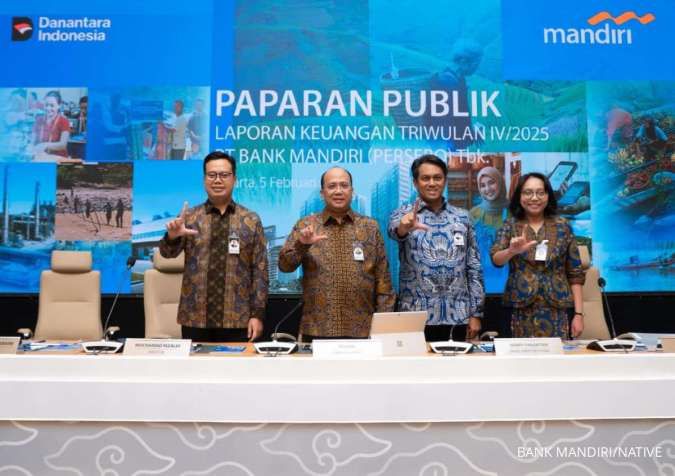JAKARTA. The government is preparing a series of regulations to help limit the impact of the decline in the rupiah on the country’s economy, which is expected to grow at a slower pace than expected this year. Finance Minister Bambang Brodjonegoro said in Jakarta on Tuesday that the measures, which would include a variety of tax incentives and an anti-dumping measure, would have an important role in easing the pressure on the country’s current-account deficit. Through such incentives the government hoped the fall in the rupiah would not result in a widening of the current-account deficit but could, rather, help local industry to boost their exports, he told a joint press conference, which was also attended by senior officials from Bank Indonesia (BI) and the Financial Services Authority (OJK).
According to Bambang, the fiscal incentives currently being prepared by the government include tax cuts for up to six years, accelerated depreciation and amortization, a reduction in tax on dividends to 10 percent and an extension of losses carried forward, from five to 10 years. Bambang predicted that such incentives would directly or indirectly help local manufacturers to boost their exports and at the same time limit imports. As a result, he said, the country’s trade balance could be improved and the current-account deficit, which is expected to remain at about 3 percent of the country’s gross domestic product (GDP), could be contained. A temporary anti-dumping duty will also be introduced, as a safeguard to curb the flow of cheap imported products into the country. Bambang said that under the new regulations the Finance Ministry would be allowed to impose a temporary tax on imported goods suspected of being sold below fair market value, even before the investigation was completed In the normal procedure it would take at least a year for the trade authority to carry out an investigation into goods suspected of being sold on the domestic market below fair market value, he added. Bambang said the government would also introduce a regulation on the exemption of value added tax (VAT) for the ship-building industry. The incentive is expected to spur growth in ship building in order to reduce the importation of ships into the country. He said another set of measures would be a program to boost the use of biofuels in the country’s energy mix so that the national reliance on fossil fuels could be reduced. The rupiah has been under pressure since early last year as improvements in the US economy have pushed up the value of the US dollar against other currencies. The rupiah continued its decline on Tuesday to end the day at 13,050 per US dollar, the lowest level since August 2008. After Malaysia’s ringgit, the Indonesian currency has been the worst-performing emerging Asian currency so far this year, with a 5.2 percent loss against the dollar, Thomson Reuters data shows. With this set of measures, the finance minister expects the country’s GDP growth will meet the government’s 5.7 percent target, although the World Bank has lowered its estimate to just 5.2 percent from 5.6 percent.
Regarding the impact of the fall in the rupiah on the 2015 state budget, Bambang said it would be limited because a weaker rupiah would also result in an increase in the government’s revenues from oil and gas exports. “We believe that the rupiah’s depreciation will not negatively affect the state budget. We have calculated that for each Rp 100 of depreciation, the state budget will see an additional surplus of Rp 2.3 trillion,” he said. At the press conference, BI deputy governor Perry Warjiyo said the central bank was convinced that annual inflation would remain at 4 percent plus or minus 1 percent despite the rupiah depreciation. “For each percentage point of depreciation, the inflation rate will only increase by 0.07 percent,” Perry said. OJK chairman Muliaman D. Hadad said the financial regulator had recently conducted stress tests on banks as well as financial-services companies and they were shown to be in a stable and resilient condition. (Grace D. Amianti)

